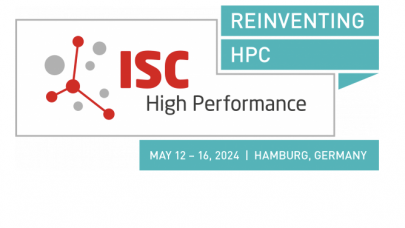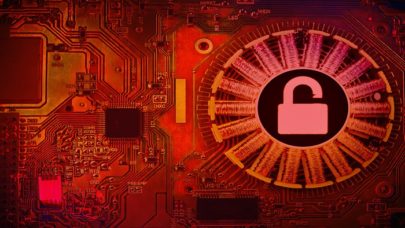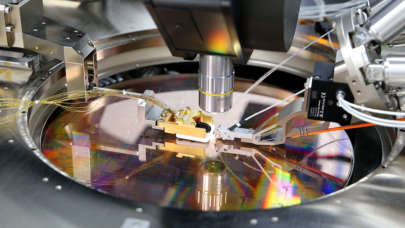Stuttgart HPC Center (HLRS) director Michael Resch will present the ISC Cloud keynote on “HPC & Simulation in the Cloud – How Academia & Industry Can Benefit,” at the conference this September. ISC Cloud, the fifth in the series, will take place September 29 and 30 in Heidelberg, Germany. As an HPC cloud skeptic in 2011, Resch characterized cloud computing as hype and predicted it would eventually go away.
In the following interview with Wolfgang Gentzsch, Chairman of the ISC Cloud Conference and President of the UberCloud, Resch explains why he has come to think much more favorably of HPC cloud over the last three years.
Gentzsch: Michael, thank you very much for making time for this interview, despite your many tasks and responsibilities at the Stuttgart Supercomputer Center. Would you please summarize your major roles at the center?
Resch: Thank you for this opportunity, Wolfgang. Here at the Stuttgart University I have three major jobs: I am the Director of the HPC Center HLRS, the Dean of the Faculty for Energy Process and Biotechnology, and the Director of the Information Center. As the director of HLRS, my major responsibilities are providing computing related services for academia and industry in the field of simulation research and delivering education and training.
Gentzsch: Traditionally HLRS is serving university and research centers in the field of high performance computing. But beyond this, and almost as an exception from the standard, I find it interesting that your center emphasizes on serving the industry as well. How did this happen?
Resch: Indeed we have a long tradition of working with local industry. As a technical university, we prepare our engineering students for the industry, which naturally leads to an excellent relationship with industry. In 1986 we started providing HPC services to Porsche, which grew into the foundation of the High Performance Computing Center for Science and Industry (HWW) in 1995. Today, we serve a dozen companies in the region, with 20 years of experience in providing computing and services, with Porsche still being our main customer.
Gentzsch: This sounds like an HPC cloud service model, with HWW as the service provider.
Resch: In fact, HWW is moving step by step toward providing HPC cloud services to industry, with one of our partners, T-Systems, providing packaged services that allow industry users to access our resources in a user-friendly way.
Gentzsch: Michael, three years ago, you predicted during a panel chat at the International Supercomputing Conference that cloud computing was just hype. But recently you said that the cloud provides a practical option for many users with large computing needs. Why did you change your mind?
Resch: When you look back three years, there were a lot of barriers when accessing and using cloud computing, especially in the HPC and engineering space. These barriers included things like licensing, transfer of large amounts of data, security issues, losing control over your simulation jobs, and others. Today we can see reasonable concepts and business models, especially for low-end HPC with only a few nodes, but still able to scale up if needed.
From an HPC center point of view, our own large scientific jobs plus the many small cloud workloads fill up a supercomputer nicely, thus increasing overall utilization of the system. For me, HPC cloud starts at the low end, with the potential of replacing the smaller systems in industry. Over time, we will see these smaller cloud workloads scaling up with the growing needs of the industry. And, we will see a similar trend in the universities. With a user-friendly HPC cloud services, departments will successively move away from their departmental systems.
Gentzsch: There is another important player in the mix -the government. As long as governments continue to support even small departments to buy their own HPC systems, a transition to a more cost-effective cloud model of pay-per-use will be slowed down very much.
Resch: Indeed! We have been confronted with this issue early on, and have had numerous discussions with our government about this. Our aim is to convince government to consider funding CPU time instead of small HPC servers. Another drawback of buying servers for university departments is that hundreds of these servers are maintained and operated by PhD students, which is a waste of brainware and time. We’d like to see researchers being freed up to fully concentrate on research instead. This means for us, in the end, that cloud is providing more freedom of research.
Gentzsch: And which role does HWW play within this ecosystem considering that traditional supercomputing is now evolving into a variety of more flexible computing models? And how complementary is SICOS BW GmbH in this mix?
Resch: Through HWW we are able to provide resources for small and medium scale jobs. We can fit these jobs nicely into our scientific mix of medium and large-scale jobs. At the same time, HWW will allow us to start contributing to a cloud service. HLRS would then be in a position to be a provider of cycles for a platform that might be open to any company worldwide.
SICOS has the key role of supporting small and medium- sized enterprises (SMEs). For a while, we will have to give special support to these SMEs as they lack experience when it comes to using cloud resources. So, while HWW helps to expand our classical services into cloud services, SICOS helps to break out of the traditional markets and open new opportunities.
All of this is complemented by a training strategy, which we are currently developing. In 2016, we will open our new training centre. Six million Euros will be allocated to cover the cost of this project. With these new training facilities, we will be able to extend our training program to industry and especially SMEs. The combination of HLRS, HWW, SICOS and the Automotive Simulation Center Stuttgart (ASCS) will then be able to cover all aspects of HPC services, HPC research, HPC development and HPC training. Cloud services and methodology will be one pillar on which this strategy is based.



























































